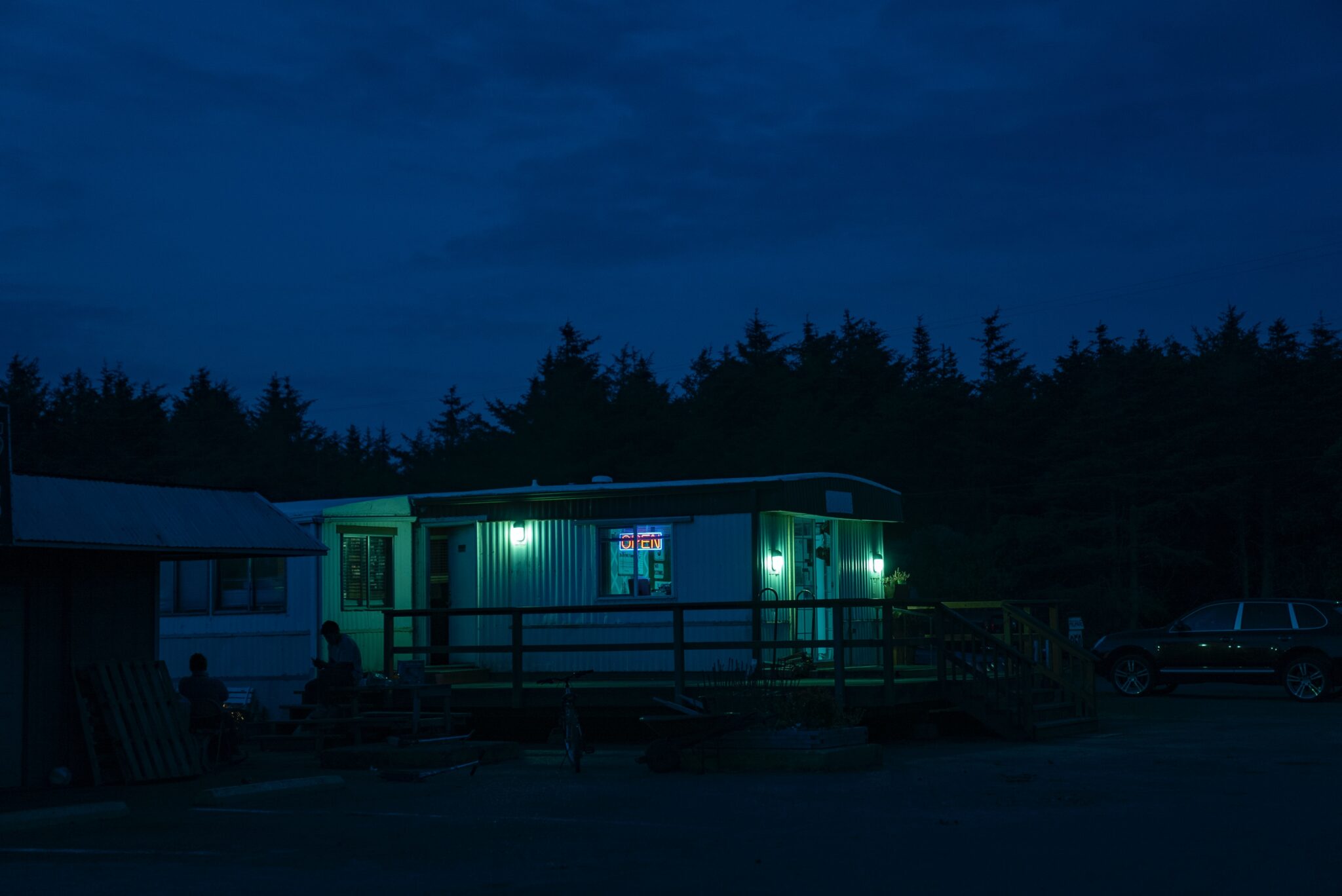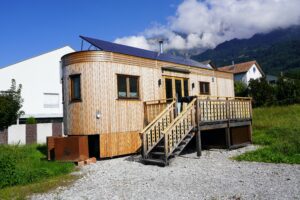Mobile Home Park Investing: Beginner Investors Guide
Mobile home park investing has gained considerable attention in recent years as more investors recognize its potential for stable, long-term returns. It has several benefits, such as being easier to get into and providing consistent income from many tenants. But, it’s important to understand how investing in mobile home parks (MHPs) works to make the most of this unique market.
One of the main reasons people are showing more interest in mobile home park investments is that it’s often less risky than other real estate asset classes. With more individual units in a mobile home park, any losses are spread out, which lessens the impact of events like evictions and unexpected costs. Also, there’s a steady demand for affordable housing, making mobile home parks appealing to investors and the people who live there.
If you want to succeed at investing in MHPs, keeping up with the latest market trends and strategies is important. You’ll need to perform thorough due diligence, pick the right properties, and understand how the economy could affect your potential investments.
By staying knowledgeable and being ready to adapt to changes, you can increase your chances of doing well in this growing market.
As a side note, over 2,000 accredited investors have joined our Passive Investors Circle to gain access to our highly vetted real estate syndications (i.e., mobile home parks!).
If you’re interested in joining, click the link below.
Join the Passive Investors CircleUnderstanding Mobile Home Park Investing
Mobile home park investing is a form of commercial real estate that consists of manufactured homes (mobile homes) situated on a plot of land with permanent hookups for utilities, water, and sewer. Unlike single-family homes or apartment buildings, mobile home parks are a niche investment opportunity that has gained popularity among real estate investors.
Asset Class
As an asset class, MHPs tend to be more stable and less competitive than other real estate investments, such as apartments and commercial properties. One reason is that mobile home park tenants primarily own their homes (aka tenant-owned homes or TOHs) and rent the land underneath, leading to lower turnover rates and fewer default risks.
Also, MHPs often have lower operating costs than other property types and are less susceptible to market fluctuations.
Some of the key characteristics of this asset class include:
- Stable cash flow: Rental income from mobile home parks can provide investors with a consistent and predictable source of income.
- Limited competition: The barriers to entry for MHP investing typically include limited supply, zoning restrictions, and the specialized knowledge required for managing such properties.
- Diversification: Adding mobile home parks to a real estate investment portfolio can help diversify an investor’s holdings and reduce risk.
Investment Strategy
When considering mobile home park investing or any other type of real estate, you should develop a comprehensive strategy that outlines objectives and criteria for evaluating potential properties. This strategy may involve:
- Market research: Researching the local economy, demographics, and housing demand to identify areas with strong growth potential.
- Property analysis: Evaluating the infrastructure, occupancy rates, and financial performance of mobile home parks to determine their viability as an investment.
- Financing options: Exploring various financing mechanisms, including bank loans, private equity, and real estate investment trusts (REITs), to fund the acquisition and improvement of the MHP.
- Management and operations: Developing a plan for managing the daily operations of the mobile home park, including tenant relations, rent collection, and property maintenance.
Key Players in Mobile Home Park Investing
Private Equity Firms and Institutional Investors
Several prominent private equity firms and institutional investors, such as The Carlyle Group and The Blackstone Group, have started to invest heavily in MHPs as they recognize their potential for providing affordable housing solutions while offering steady returns for their investors. (This is one of the reasons I began investing in MHPs and now offer these deals to our Passive Investors Circle members.)
Industry Leaders
Two industry leaders in the MHP investing sector stand out: Frank Rolfe and Clayton Homes.
Frank Rolfe has earned a reputation as an experienced and knowledgeable figure in the industry, with many mobile home parks under his management.
Clayton Homes, owned by Berkshire Hathaway, a conglomerate chaired by Warren Buffett, is one of the largest mobile home manufacturers in the United States. They produce a range of mobile homes and own and operate numerous mobile home parks nationwide.
Mobile Home Park Owners
There are several types of mobile home park owners in the United States — from individual private owners to larger corporations. For example, Equity LifeStyle Properties, Inc. (ELS) is the largest owner of MHPs in the country. ELS has experienced significant growth potential in the manufactured housing market, as demonstrated by its presence on the New York Stock Exchange.
Additionally, George McCarthy, another prominent figure in the MHP industry, advocates for innovative and sustainable practices in developing these communities. McCarthy’s influence and accomplishments have led to his recognition as a respected leader within the industry.
Don’t Miss Any Updates. Each week I’ll send you advice on how to reach financial independence with passive income from real estate.
Sign up for my newsletterWhat Are The Benefits Of Mobile Home Park Investing?
#1. Cash Flow and Return on Investment
Investing in mobile home parks has proven a great option for those seeking consistent cash flow and a high return on investment (ROI). With lot rents serving as the primary source of income, MHP investors can enjoy a steady stream of revenue.
As mobile home owners are responsible for their own home maintenance, park investors typically have less money invested in repairs and upkeep than they would with a traditional apartment complex.
Lower costs and stable income often result in higher returns for mobile home park investments.
#2. Affordable Housing Crisis Opportunities
The affordable housing crisis in the United States has created unique investment opportunities for mobile home park investors. Mobile home parks provide an affordable alternative to traditional homeownership, making them increasingly popular in urban development areas with high demand for low-income housing options.
The Manufactured Housing Institute reported last year that the number of manufactured homes being shipped had increased significantly in recent years, signaling the growing importance of mobile homes as a solution to the affordable housing crisis. By investing in MHPs, investors can capitalize on this high demand and contribute to providing affordable homes for those in need.
#3. Demographic Trends
A few changes happening in our population are good news for the mobile home park (MHP) business. Firstly, many people from the “baby boomer” generation (those born between 1946 and 1964) are starting to retire. Many of these retirees are considering moving into smaller, cheaper homes that are easier to take care of. Because of this, more people want to live in mobile homes. This has resulted in increased demand for MHPs and a steady market for investors.
Second, there has been a shift in the perception of mobile homes as valid housing options in recent years. As more people recognize the potential for MHPs to provide affordable, community-centric living options, the demand for these kinds of living spaces will keep increasing, which is a positive sign for investors.
Challenges and Risks of Mobile Home Park Investing
Regulations and Legal Factors
One of the main challenges in MHP investing is navigating the numerous regulations and legal factors that govern land use, zoning, and tenant rights. These rules can vary significantly between states and local jurisdictions, requiring investors to conduct due diligence to ensure compliance.
Additionally, rent control laws can limit the ability to implement rent increases to boost returns on investment, further complicating the decision-making process.
Maintenance and Capital Improvements
While one of the attractions to mobile home investing is the lower maintenance costs compared to other rental properties, investors should be aware of the ongoing expenses and the need for capital improvements.
Mobile home park owners are responsible for the upkeep of common areas, utility systems, and often the infrastructure, such as roads and sewer connections, on the plot of land. Addressing these potential issues can be costly and time-consuming. The condition of the new mobile homes in the park will also play a factor, as older units may require more frequent and expensive repairs.
Steep Learning Curve
Investing in MHPs entails a steep learning curve for those new to the industry, as it differs significantly from traditional real estate investments. This market caters to low-income households who seek affordable housing options, which impacts the overall home prices within the park. Compared with more familiar housing communities, mobile home parks have unique operational and management challenges.
As a result, investors should consult with experienced real estate agents or professionals who deeply understand the housing market in their target areas. In addition to navigating legal and maintenance issues, investors must consider the potential impact of economic trends, such as fluctuating interest rates, on their initial investment.
How to Invest in Mobile Home Parks
#1. Understanding the Market
To invest in mobile home parks, it’s crucial to have a thorough understanding of the market and industry trends. Research consumer behaviors, the type of housing available, and major employers in the area where you plan to invest.
Fannie Mae and Freddie Mac can provide valuable information on market data. At the same time, Mobile Home University offers resources to help new mobile home park owners and buyers navigate the industry.
#2. Building a Network
A strong network of connections can go a long way in achieving success in the mobile home park business. Focus on building relationships with industry leaders, owners of the mobile home parks, investor-friendly agents, and existing mobile home park owners.
Also, attend conferences and workshops to build your network and gain insights into the factors that drive this unique real estate investment.
#3. Conducting Due Diligence
Before investing in a mobile home park, conducting a thorough due diligence process is essential. This includes evaluating the park’s:
- Location: Consider proximity to employment, transportation, schools, and other essential amenities.
- Marketability: Determine the demand for mobile homes in the area and assess competitors.
- Condition: Inspect the park’s infrastructure, including utilities, roads, and facilities.
- Revenue and expenses: Review financial documents and analyze the park’s income, expenses, and historical financial performance.
Additionally, check local zoning regulations and ensure the park complies with all pertinent laws.
#4. Closing the Deal
Once you have completed your due diligence, negotiate the purchase price and contract terms. You may need to secure financing through lenders specializing in mobile home park loans or partner with real estate investment trusts (REITs).
It’s also important to enlist the help of an experienced attorney to ensure a smooth transaction.
#5. Managing Mobile Home Parks
Successful mobile home park investing requires efficient management and attention to detail. Focus on:
- Tenant relations: Foster a sense of community and respond promptly to resident concerns.
- Property maintenance: Keep the park in good condition and promptly address needed repairs.
- Marketing: Advertise vacant lots and homes to attract potential residents.
- Additional revenue: Explore opportunities for enhanced revenue streams, such as providing storage space or offering laundry facilities.
Investors can potentially capitalize on this lower-cost, high-demand asset class by understanding the market, building a robust network, conducting due diligence, closing the deal, and efficiently managing mobile home parks.
Don’t Miss Any Updates. Each week I’ll send you advice on how to reach financial independence with passive income from real estate.
Sign up for my newsletterFAQs
How do parks generate income?
Mobile home parks generate income primarily through lot rent, which is the monthly fee tenants pay for the land their mobile home sits on. Other sources of income may include utility fees, storage, and laundry facilities, or even filling and maintaining vacant lots with new tenants. Depending on the park’s management and amenities, some may offer additional services for an extra fee.
What are the pros and cons of ownership?
The main advantages of owning a mobile home park include lower acquisition costs than other real estate options, lower tenant turnover, less competition from other investors, and high demand for affordable housing options. However, some challenges exist, such as potential depreciation of the mobile homes, difficulty finding financing, and higher down payment requirements.
What is the process of buying a park?
Buying a mobile home park involves several steps, such as evaluating the potential investment, conducting due diligence, obtaining financing, and closing the deal. This typically includes conducting market analysis, reviewing the park’s financial records, verifying compliance with regulations, and negotiating the terms of the sale. Buyers should also seek legal counsel and assistance from experienced professionals in the mobile home park industry to ensure a smooth transaction.
What happens when a park is sold?
When a mobile home park is sold, the new owner typically assumes responsibility for the park’s operations, including collecting rent and managing maintenance. Depending on the new owner’s policies, existing tenants may be subject to new rules or regulations. Sometimes, a park sale may result in higher rents or changes to amenity offerings. Tenants should stay informed about the sale process and its impacts on their housing situation.
What are rent increase regulations?
Rent increase regulations for mobile home parks vary by state and local jurisdiction. Some areas have rent control laws limiting how much and frequently park owners can increase rent. These regulations are designed to protect tenants from dramatic rent hikes and may require advance notice before implementing any increases. Park owners and tenants need to familiarize themselves with the specific rent regulations in their region to ensure compliance and avoid potential disputes.
Join the Passive Investors Circle



